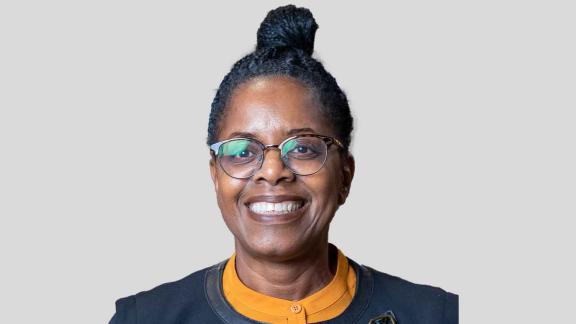Barclay has attacked the founding principles of the NHS

Protecting NHS equality, diversity, and inclusion roles is crucial to preserving the NHS’s founding principles and ensuring equitable, high-quality care for all, writes Joan Saddler.
This article was first published in the HSJ on 9 November 2023.
The nature of the recent intervention by the health and social care secretary Steve Barclay, calling into question the need for NHS equality, diversity and inclusion roles essentially contradicts the founding principles of the NHS. It goes against those principles in terms of its governance and its autonomy to respond and ensure accountability to local people.
Mr Barclay is right about one thing though; we do need to tackle inequality. However, to disregard the professional skills and expertise required to ensure local communities are at the heart of co-producing services tackling inequality is to discount NHS staff and the communities they serve.
How we continue to tackle inequalities is and will continue to be critical to the success of the NHS. Principles matter, and as the political activist Marcus Garvey famously said: “A people without the knowledge of their past history, origin and culture is like a tree without roots”.
Too often we reflect on the current state of our health service without referring to its inception; to the acute need that existed in our society for care for all, free at the point of use and to the principles that drove the creation of the national health service.
...leaders employing and supporting professional roles delivering equality and diversity for inclusion, develop better care for all
We forget that what pre-dated the NHS was extremely limited healthcare for the few; care that was available only to those that could afford it.
The NHS was created to address those disparities, it exists to tackle inequality and strives to do so by ensuring that those common issues faced across our society; of ageing, caring, physical or learning disabilities, race, gender, sexual orientation and poverty, are not a barrier to receiving excellent care. Just to be clear, leaders employing and supporting professional roles delivering equality and diversity for inclusion, develop better care for all.
NHS governance requires accountability to and with local people. As well as the explicit reference within its constitution to the need to address inequality, the NHS is bound by several key pieces of legislation including the Equality Act 2010 followed by the Public Sector Equality Duty 2011. For the service to remain within the law it must deliver equitable care and seek out those who are seldom heard and struggle to access care.
Embracing diversity in society and healthcare
Delivering such care requires an evidenced-based, proactive and determined approach which dismantles structural barriers that impede justice. It requires leaders to be able to name these uncomfortable disparities borne of prejudice and discrimination and to understand and tackle them head-on. It also requires organisation and the mobilisation of a professional, skilled workforce. The government’s own commissioned review of NHS leadership and management, undertaken by General Sir Gordon Messenger made clear that dedicated EDI professionals were necessary to help in this endeavour.
We, as a society, are gloriously diverse, as reflected across the health and social care workforce and in those people using the services provided, let us elevate this reality
As NHS England’s chair Richard Meddings recently said, EDI roles not only support statutory compliance, but they also help improve culture and tackle discrimination, reduce vacancies, boost productivity and ultimately, ensure the best possible outcomes for the patients we serve.
Current estimates put NHS annual spending on dedicated EDI roles in the range of £40 million. This accounts for less than 0.03 per cent of its annual resource budget for 2023/24, yet this very small fraction of overall NHS spend receives enormously disproportionate political attention.
Real progress – that which improves patients’ lives, strengthens communities and has the power to ease some of the burden on our health service is not quick or easy. It requires expertise – the same expertise we’d expect to see applied to complying with any other legal requirements.
We, as a society, are gloriously diverse, as reflected across the health and social care workforce and in those people using the services provided, let us elevate this reality. Let us not let the negative clamour stoked outside the NHS where headlines about 'woke' spending, 'diversity officers' and 'non-jobs', fail to grasp the true magnitude of responsibility placed on leaders and EDI professionals to ensure the efficient and productive delivery of high-quality care. Such comments also fail to acknowledge the gap between visible acknowledgements of diversity and difference, and the ongoing effort required to dismantle structural inequality to truly transform the NHS and improve care for all.
An attack on professionals tackling diversity, attacks and erodes NHS founding principles, as a health service we must be clear about our history, our values and what is at stake in our future if we do not continue to tackle inequality at scale across the health service.
We must use EDI expertise, skills and leadership in partnership with local communities to tackle inequality for all. We can do no less.
Joan Saddler OBE is director of partnerships and equality at the NHS Confederation and co-facilitator of the BME Leadership Network.



